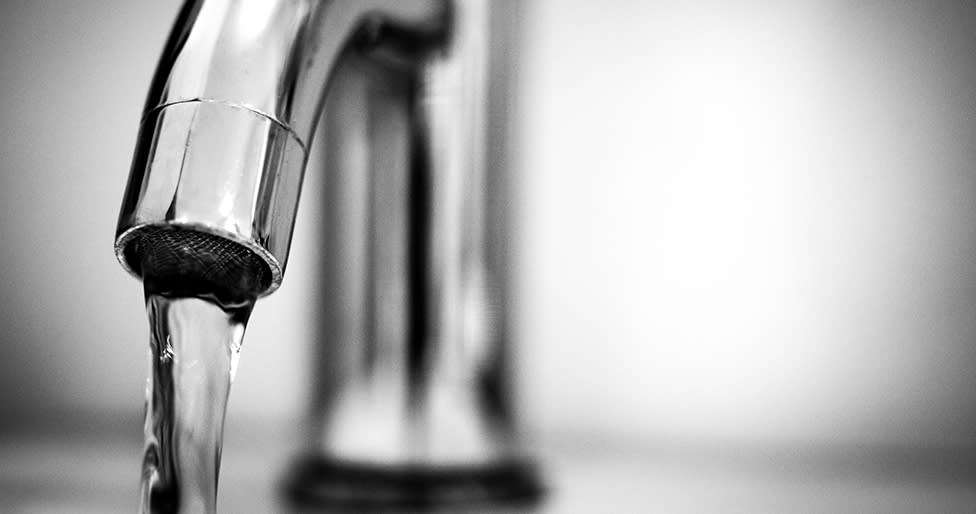
Internal and external water pipes are easily susceptible to freezing and can potentially burst, causing an expensive wintertime plumbing disaster. You might think that cold weather is no match for your superior indoor heating system, but think again. Interior pipes can freeze easily, just like your exposed pipes outside.
However, there are several steps you can take to prevent your pipes from freezing and keep the water flowing.
The Best Ways to Prevent Frozen Pipes:
Turn water off when not in use or during freeze warnings
Heed freeze warnings by turning off your main water valve before temperatures begin to plummet at night. Take care of all water-related needs (bathing, washing, cooking) before turning off your water, or draw water and set it aside for later (drinking water, cooking water). If you have a well, make sure to turn off the pump.
If you’re going on a trip, make sure to turn off your water as well; you won’t be using it anyway and it will save you the trouble of coming home to burst pipes.
Drain excess water
Drain water from your exterior water systems like pools, hoses and sprinkler systems. Open outside hose bibs and allow the water to drain and keep outside valves open. You won’t be using most of these items throughout the winter so it’s best to drain any standing or excess water. Use heat tape or cables on exposed water pipes as well to prevent freezing.
Open cabinets or doors that have interior pipes behind them
Insulation is key to preventing pipes from freezing. All outdoor pipes, including water lines, should be thoroughly insulated, but sometimes insulation isn’t enough to handle the most severe cold weather. Sinks located within a cabinet or door against an exterior wall don’t insulate very well. Leave cabinet doors open to let your home’s warm air heat your pipes for you and prevent cold air from forming within them.
Let your faucets drip slowly
Sometimes alleviating pressure within your pipes can help prevent pipes from bursting. First, start a slow drip using the hot side of your faucet, then switch to a slightly faster drip on the cold side. Make sure not to run too much water. Your bathroom faucets can run cold as long as it’s not freezing cold water.
Disconnect water hoses from outdoor spigots
Some of the most common burst pipe issues occur when water freezes while a water hose is connected to an exterior spigot. Make sure to disconnect all hoses from exterior spigots as winter approaches. You probably won’t be using them much anyway, so only connect your water hose when it’s in use and make sure to immediately disconnect it once you’ve finished.
Use ICE LOC to absorb excess water
ICE LOC is a plumbing product that prevents pipes from rupturing by absorbing standing water before it freezes. It’s an elastomer that is inserted into your pipes and travels along the length of the pipe to cover potential problem areas. Insert it before temperatures fall to ensure standing water is absorbed.
Prevent Freezing and Burst Pipes with Puget Sound Plumbing
If you’re unsure of how to best prevent your pipes from freezing, Puget Sound Plumbing is here to assist you. Our plumbers can recognize signs of pipes vulnerable to freezing and can recommend solutions on how to best insulate them or prevent them from freezing.
Some items like heat cables can be fire hazards if improperly installed or applied. Our plumbers can safely install heating cables and insulate your pipes for you to keep you and your home safe.
We also provide a variety of other, non-seasonal plumbing services. Contact us today to have our plumbers inspect your home’s pipes, make recommendations on how to prevent freezing or safely install insulation for you.


